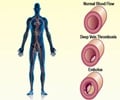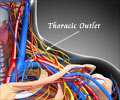Diagnosis of Blood Clots
Imaging studies and blood tests help in the diagnosis of blood clots.
After obtaining a complete patient history and examining the patient, some tests may be used to diagnose the presence of a blood clot, and to find out its cause and detect associated complications.
Tests used in the diagnosis of blood clot are:
- Blood tests: These include:
- Complete blood count and platelet level.
- Measurement of lipid levels in the blood like total cholesterol, LDL-cholesterol, HDL-cholesterol and triglycerides.
- Other tests like lipoprotein (a) and fasting homocysteine levels, which show if a person is prone to plaque formation in the arteries, and HbA1c levels, which indicates diabetes control.
- Tests that could diagnose increased clotting of blood like prothrombin time and activated partial thromboplastin time (aPTT). Additional tests may include anticardiolipin antibody (ACA) or beta-2 glycoprotein, lupus anticoagulants (LA) and heparin antibodies.
- Tests to identify genetic defects like factor V-Leiden and factor II (prothrombin) G-20210A.
- Imaging studies: Imaging studies that help to locate the clot are:
- Computed Tomography CT scan
- Ultrasonography
- Magnetic Resonance Imaging studies (MRI)
- Echocardiogram and electrocardiogram (ECG)– to detect a clot in the heart
- Angiograms and Venograms
- Chest X–Ray
















